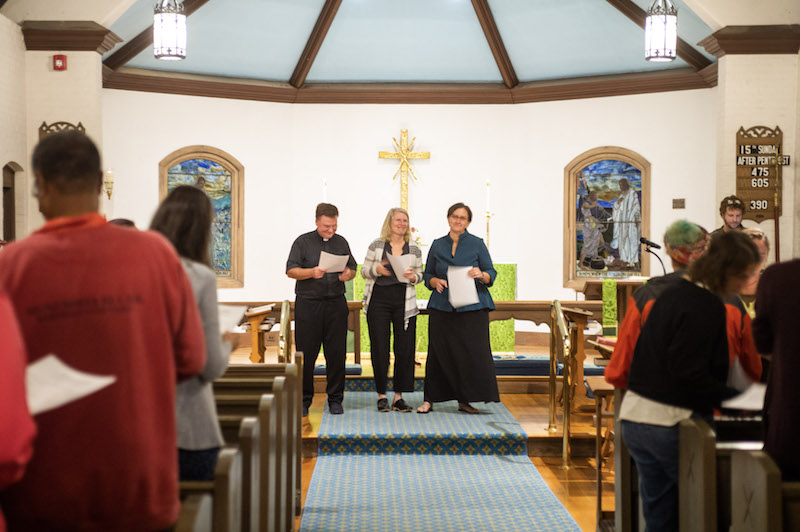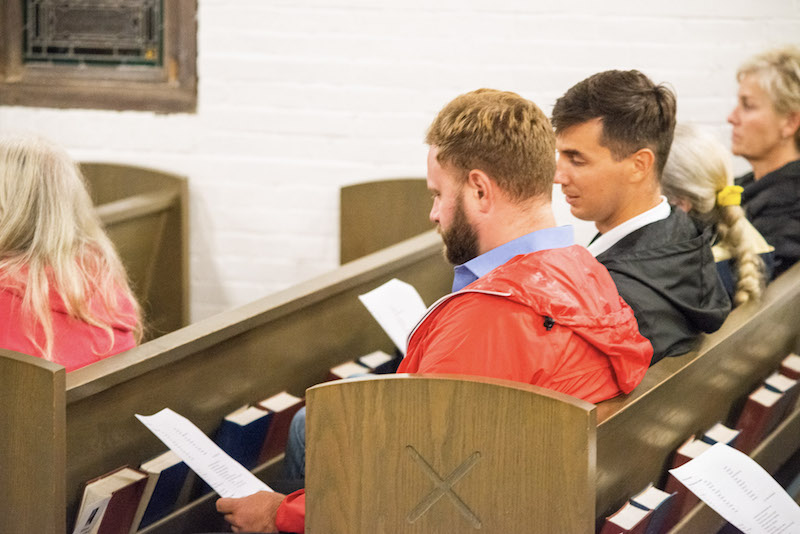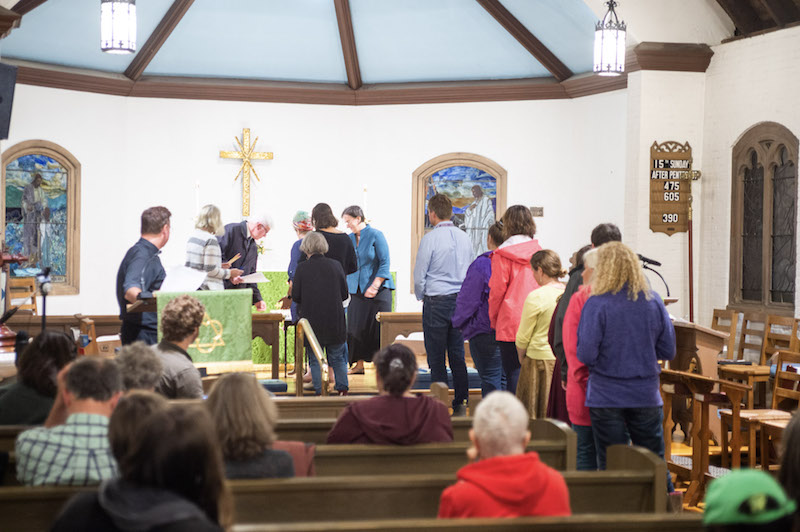A week after Venezuelan migrants first spent the night at St. Andrew’s Episcopal Church, over 40 volunteers gathered at the same spot Thursday evening to reflect on three questions: What did we learn? How have we changed? What’s next?
“We’ve experienced a community-shared ‘Aha!’ moment,” said Rev. Cathlin Baker of the First Congregational Church of West Tisbury. “Where do we go from here?”
The reception, guided by Father Chip Seadale of St. Andrew’s, Reverend Baker, and Rev. Janet Newton of the Unitarian Universalist Society, began with a candle lighting for each migrant who had been sheltered at the church. Volunteers were invited to light a candle for a friend they had known in particular, or to simply pay respects to the group as a whole.
Dozens of audience members lined up, lighting 48 candles total.
Music director Bill Peek and vocalist Jessica Sanseverino led the crowd in a rendition of Aún, a Venezuelan rock song by the Caracas-based group La Vida Bohème.
“It was important that we use a song that would hit close to home,” Reverend Baker said. “And it’s also a song about migration.”
Ms. Sanseverino performed the lyrics in Spanish, inviting the crowd to join in the chorus. Aún means still in Spanish, she explained, highlighting the perseverance migrants hold onto in the face of obstacles.
“Las rodillas tiemblan pero no puedo parar / Quiero que mis hijos tengan lo que a mí me quisieron quitar,” she sang. The translation appeared in the program: “My knees are shaking but I can’t stop. / I want my children to have what they wanted to take from me.”
The service also invited volunteers to look inward, sharing their feelings about the past few days and encouraging them to express gratitude towards whoever moved them. Words like “miracle,” “gratitude,” “privilege,” “anger,” “frustration,” “overwhelmed,” and “proud” rang out in the chapel.
Sara Dingledy, principal of the Martha’s Vineyard Regional High School, thanked her students for showing up to interpret and for engaging the migrants on a personal level.
Father Chip thanked all of the volunteers. “You said yes and entered into a very complex situation,” he said.
Reverend Baker acknowledged that every individual in the room that night was there because they said “yes.” The conversation then turned to how to mobilize the outpouring of support into a unified front against long-term problems on the Island.
“Just because something is happening slowly does not mean it’s not a crisis,” Reverend Newton said after the discussion. “It’s easy to ignore the slow burn we live with every day.”
The question of housing, in particular, emerged as a priority, with residents urging immediate action.
“Our housing problem must be addressed as soon as possible so we can house 50 or 100 people,” volunteer Kevin Brennan said.
Marjorie Pierce, a frequent volunteer with the Harbor Homes shelter and the Island Grown Initiative, knows housing and food insecurity intimately on the Island and echoed Mr. Brennan’s sentiments after the service, saying she was surprised it had taken so long for housing to come up.
Reverend Newton commiserated. “What would it look like if everyone who said, ‘I’ll help’ showed up to help with other things? To help with the slow burn?” Reverend Newton asked.
Reverend Newton credited the Island clergy’s capacity for unity in a time of emergency and looked forward to ongoing collaboration with the community at large.
“We can recognize we’re all in the boat and we all have an oar in our hands,” she said. “How can we start rowing together?”










Comments (1)
Comments
Comment policy »